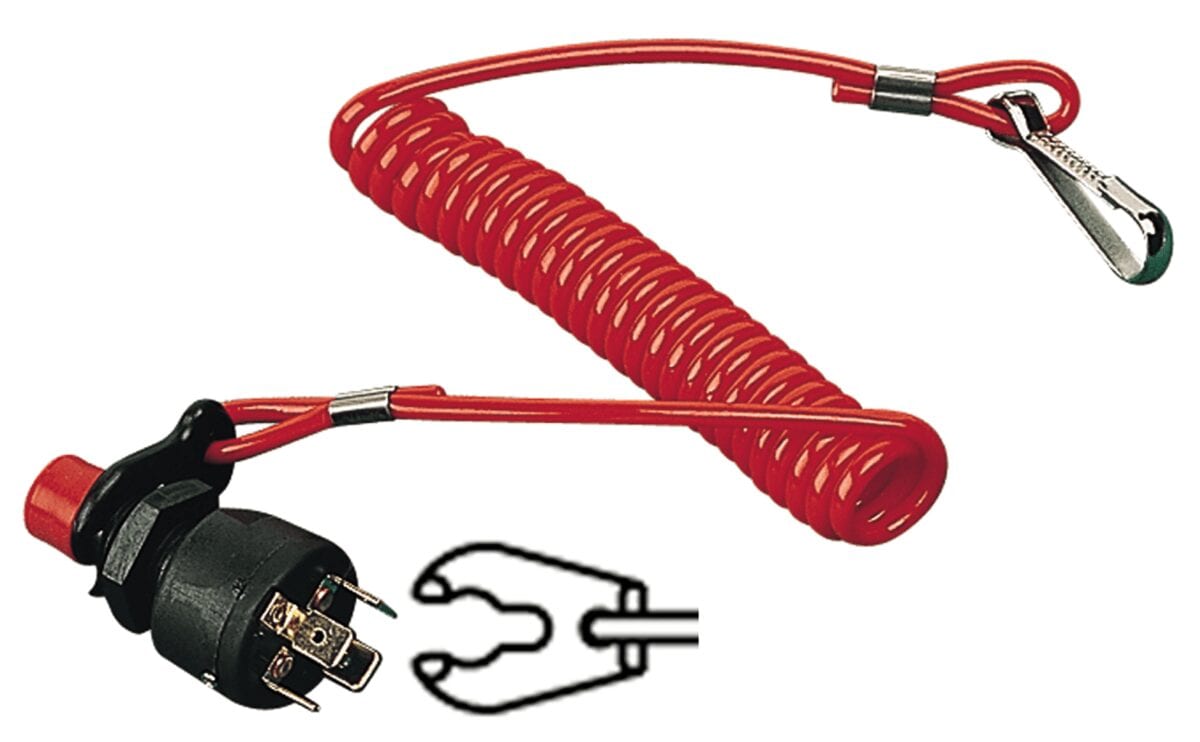
For more information on the new law that goes into effect on 1 April 2021, click here to visit the ECOS FAQ section
Why you should wear your Engine Cut-off Switch link?
A typical three-blade propeller running at 3,200 rpm can inflict 160 impacts in one second so it is critical that you are aware of what is going on around you. Be aware:
- People in the water may not be visible from the helm
- Account for passengers before starting the engine
- Inform passengers about propeller hazard areas
- Be alert in congested areas and near swimming zones
- Take extra precaution around towed watersports
- Never permit riding on the bow, gunwale, transom, seatbacks, or other locations where an occupant could fall overboard
- Children should be watched carefully at all times – it only takes a second to fall overboard
- You would childproof your home so think about childproofing your boat
- Establish rules for swim platform use, boarding ladders, and seating
- If someone falls overboard, STOP the boat; once clear begin recovery procedures
- Warning – Never put your boat in reverse to pick someone up out of the water, always circle around going forward while keeping the person in the water visible to the boat operator at all times.
Engine Cut-Off Switch – FAQ
A list of frequently asked questions about Engine Cut-Off Switches.
Propeller Guard Test Protocol
The United States Coast Guard Office of Auxiliary and Boating Safety announced the release of the Propeller Guard Test Procedure report developed for the Coast Guard under the auspices of the American Boat and Yacht Council. This procedure is intended for use by developers of propeller guard devices and independent third party testing entities to test propeller guard products in a consistent, repeatable manner.
Propeller Safety
View the BEWARE Boat Propellers… A Hidden Danger.
Also available in Spanish
Author: The U.S. Coast Guard’s Boating Safety Division
Date: April 1, 2021
Link: Click here to read the original article
